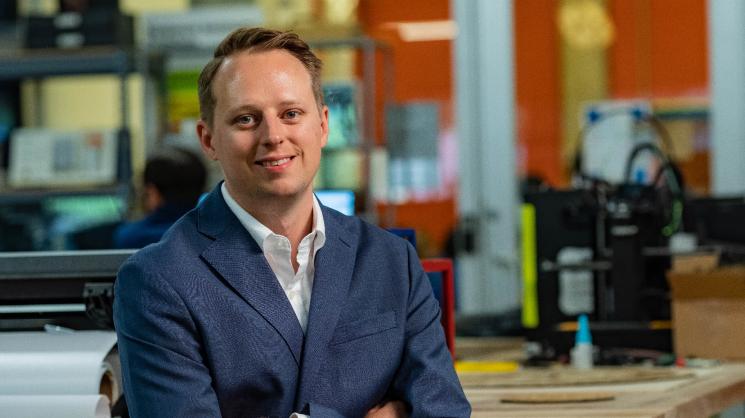Will Clifton is a life-science entrepreneur and bioengineer with a background in medical device and innovation education. As director of the Global Medical Innovation (GMI) track in Rice’s Master of Bioengineering (M.B.E.) program, his focus is on preparing engineers to work in the growing and dynamic medical technology industry.
Clifton is leveraging his background to help students identify unmet medical needs, determine if their early-stage projects can become a viable business, and help them think through the strategic steps to get through a clinical trial and first approval.
Prior to his work at Rice, Clifton was the senior director of medical affairs at Procyrion, where he spent six years developing a minimally invasive pump to treat heart failure, taking it from a prototype through first-in-human clinical trials. His research has led to one issued patent, multiple peer-reviewed publications, and an upcoming multi-continent clinical study.
Clifton has a B.S. in biomedical engineering from the University of Southern California. He earned his medical degree from Baylor College of Medicine (BCM), where he continued to study medical technology with a focus in minimally invasive surgical technologies with mentorship from William Cohn, a thoracic and cardiac surgeon at BCM and the Texas Heart Institute. He also pursued advanced research through a one-year Howard Hughes Medical Institute fellowship with otolaryngologist John Oghalai to investigate hearing loss and novel cochlear implant technology.
GMI is a unique non-thesis M.B.E. track offered by Rice University’s Department of Bioengineering. The program guides students as they identify unmet clinical needs and develop innovative solutions. The goal of the GMI program is to grow globally minded engineers that support the development of safe, affordable products that meet real medical needs.
During the course of the one-year program, students will:
- Identify unmet medical needs through clinical observation
- Develop a novel medical solution with an interdisciplinary team of medical, business, and engineering students
- Manage a GMI Incubator project and support one or more of their peer’s projects
- Complete a two-month international internship at a medical device company
- Travel internationally each semester to visit clinical sites and interview clients.
Rice’s GMI curriculum puts students in the driver’s seat as they manage both early- and late-stage projects, and gain experience throughout the entire product development life cycle.
Learn more: visit GMI.rice.edu

